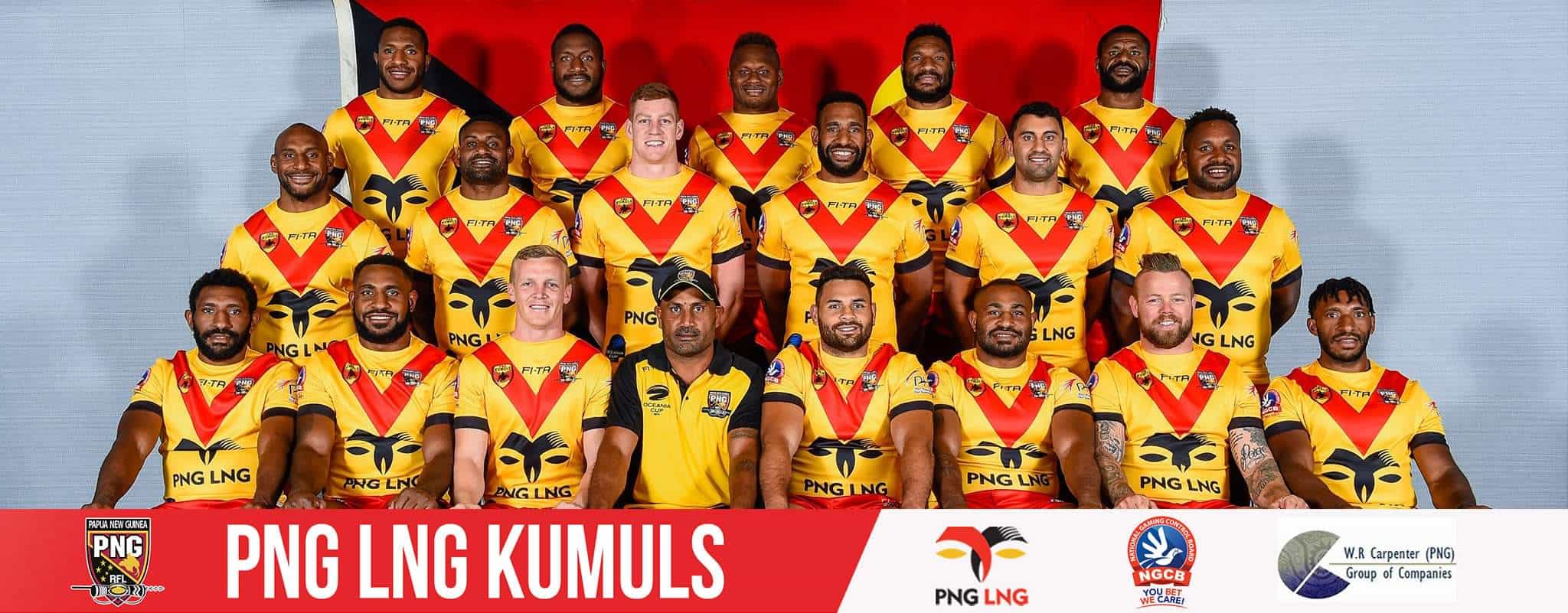For all the focus in the Australian media on recent developments throughout the Pacific, it’s strange that the potential addition of a Papua New Guinea team to the Australian National Rugby League appears to have largely remained on the sports pages. Relatively modest government support for this proposal could provide a great win for the Australia–PNG relationship.
Rugby league is immensely popular in PNG, the only country in which it is the national sport. The code was exported to the then-territory in the 1930s and 1940s by miners and soldiers. The men’s national side, the PNG Kumuls (meaning bird of paradise in Tok Pisin) plays the Australian Prime Minister’s XIII annually. The country has also fielded a women’s international side, the Orchids, since 2017. Many thousands of fans greet even losing teams when they return to Port Moresby.
At the domestic level, the PNG Hunters play in the Queensland Rugby League, one of Australia’s second-tier competitions. The Hunters won the premiership in 2017 in that competition, and their games are very widely watched in PNG. The NRL’s State of Origin series is wildly popular there, too.
Much has been written about sports diplomacy in general and Olympic games often prompt discussion on the topic. The infamous 1936 Munich Olympics and so-called ‘ping-pong diplomacy’ are often referenced. Closer to home, Anthony Bubalo wrote some time ago on the Australian potential of ‘football diplomacy’ in Asia, where soccer is very popular.
In 2019, the government produced a strategy led by the Department of Foreign Affairs and Trade called Sports Diplomacy 2030. That document notes that close to half of all players in the NRL have Pacific heritage, and commits to developing ‘pathways for Pacific athletes and teams to participate in Australian and international sporting competitions’ in general terms. Accordingly, the government already provides support to sport across the Pacific through PacificAusSports—though the details of this support for specific sporting codes and initiatives are a little unclear.
This latest PNG-NRL initiative is not entirely novel. An ultimately unsuccessful bid team met NRL executives in 2010, when sponsors including Coca-Cola and PNG government ministers were backing an initiative to add a PNG franchise to the competition. As was noted at that time, ‘an indication of the hold rugby league has on the nation’s population was a recent government edict making the sport a mandatory part of the curriculum in all schools’.
In years gone by, Labor has supported the idea. Before the 2019 election, Labor made a policy commitment to investigate how to get a PNG team into the NRL. The commitment was not renewed during the recent election campaign, but political winds might have shifted at an opportune time for the new PNG bid and its backers.
The latest bid is backed by PNG Prime Minister James Marape, and proponents have apparently suggested that they are open to it having a broader Pacific bent, with potential links to Fiji, Tonga and Samoa. Others have suggested some kind of joint venture with north Queensland. This is a nod to the broader potential of rugby league as a link to Australia’s Pacific neighbours—the Fijian Kaiviti Silktails play in the NSW Rugby League, another second-tier competition. Backers apparently believe the PNG team could be ready to go from 2025.
The 2022 NRL salary cap was $9.4 million. Australia’s aid spend in 2021–22 totals more than $4.3 billion, and the new federal government has committed to significant increases in aid spending for the Pacific. Of course, salaries are far from the only cost associated with running a rugby league club. But if you average the NRL’s annual expenses, the competition only spends about $33 million per club in addition to individual club balance sheets.
Just a little bit of Australian government money directed towards a PNG (or Pacific) team would make a substantial difference to the commercial viability and reach of such a club.
There are of course real difficulties. Finding a sponsorship base for a PNG team would be trickier than for established NRL clubs, for example, and a team needs to be financially sustainable to have a future. There are also complicated politics within the NRL, with teams naturally protecting their existing fan bases. This is all ultimately a decision for the NRL, not the Australian government, so these considerations are not mere quibbles. Nonetheless, there is no reason to think that a way forward can’t be found.
Potential Australian government support shouldn’t be seen as purely financial. There’s a lot at stake here, and it’s important that a PNG club not simply go ahead but genuinely succeed. This means making sure the club is properly administered and that it is assisted with regulatory and immigration hurdles, for instance. Drawing on the successes and lessons of the Hunters and Silktails, both of which have received Australian government assistance, is an obvious starting point.
As this Sydney Morning Herald report on the broader implications of the PNG bid makes clear, sporting affinity is a comparative advantage Australia enjoys with our Pacific neighbours. No competitor can buttress their diplomatic relationship with PNG and the wider Pacific in the same way we can with rugby league. This might also be an unconventional opportunity for modest but consequential infrastructure investment and economic exchange with our most important neighbour.
If it isn’t already, the Australian government should seriously consider supporting the 18th NRL club—in PNG colours. This is a potential win-win we should all be celebrating….PACNEWS
William Leben is an analyst on secondment to ASPI from the Australian Army.
